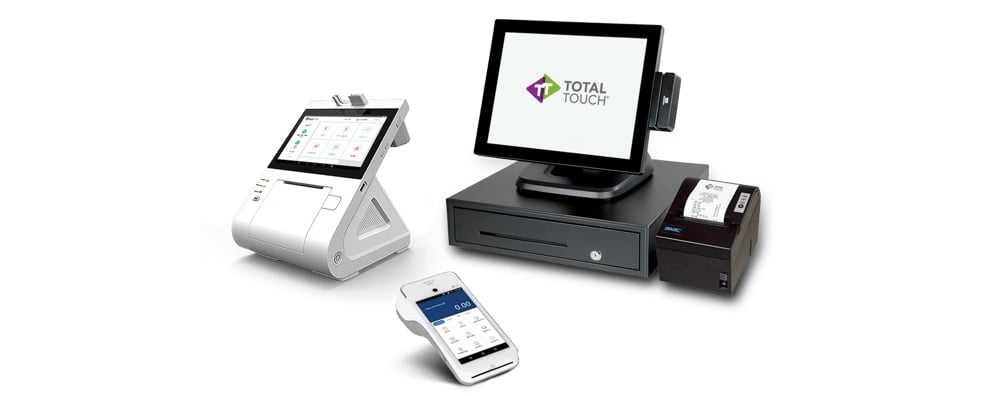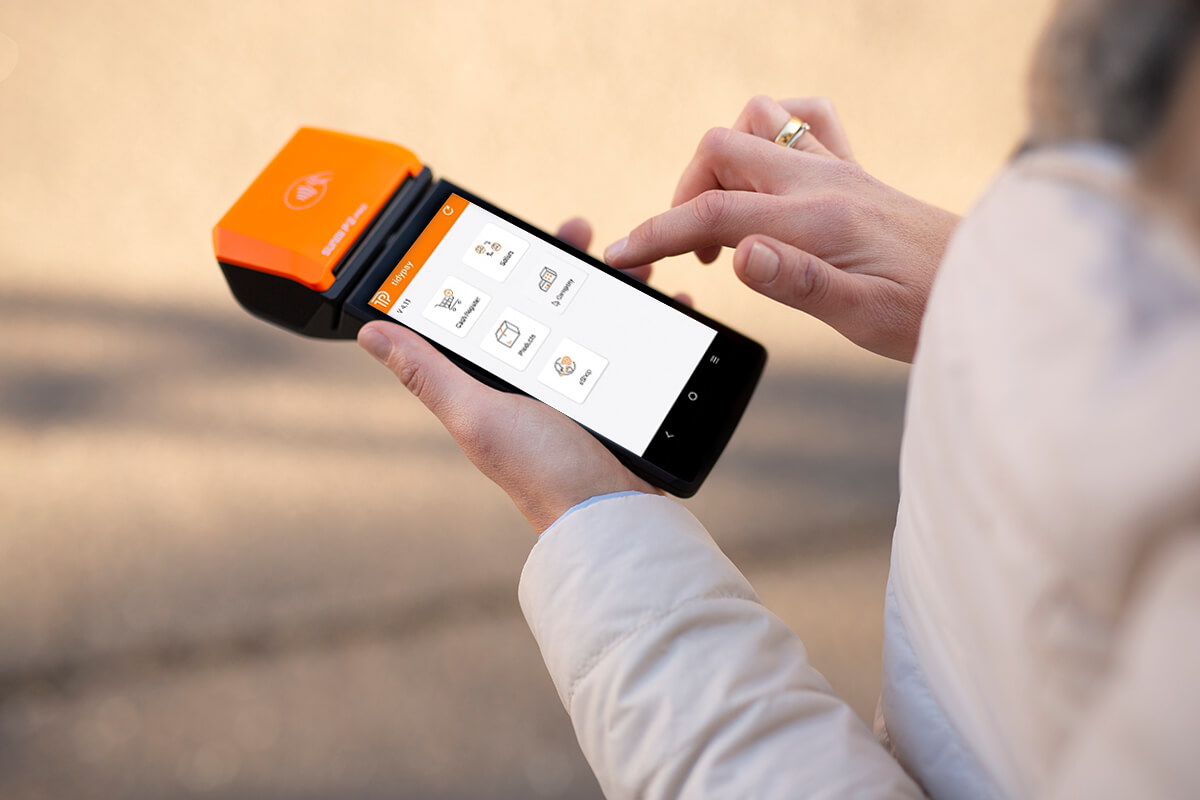The Facts About Pos Systems Revealed
The Facts About Pos Systems Revealed
Blog Article
Examine This Report about Pos System For Small Business

Pos System for Small Business: Retail Point-Of-Sale Solutions Streamline Transactions
The 9-Minute Rule for Pos System For Small Business

Hardware Parts of a Point of Sale System What makes a POS system tick? It's not simply software; the hardware plays a starring function. Think of it as the body to the software's brain. Without the best hardware, even the most advanced POS software application is just a quite face. Necessary POS Hardware So, what are the must-haves? Let's break it down. The main processing system, often a computer or tablet, is the heart of the operation. The monitor or touchscreen show allows personnel to engage with the system. A barcode scanner accelerate the checkout procedure. Keep in mind the days of by hand going into each code? The trusty receipt printer offers clients with a record of their purchase. A money drawer keeps your money safe and arranged. A card reader permits clients to pay with credit or debit cards. Diving Deeper: Beyond the Fundamentals However read more wait, there's more! Depending on your company, you may require customized hardware. For example, a restaurant may incorporate kitchen area printers to relay orders, while a retail store may utilize label printers for product tagging. Ever wonder how your regional pastry shop immediately prints those delicious-looking labels? Selecting the Right Hardware: A Balancing Act Picking the best hardware isn't practically buying the most pricey devices. It has to do with discovering the sweet area between functionality, resilience, and budget. A small business simply starting out may choose a more fundamental setup, while a high-volume seller will need robust, high-performance makers. Is it much better to buy brand-new or used? Consider your alternatives carefully. A new system provides the most recent innovation and warranty protection, but a refurbished system can save you money. The Future of POS Hardware What does the future hold? Anticipate to see even more integration with mobile phones, biometric scanners for employee authentication, and advanced analytics control panels displayed on bigger, clearer screens. Envision a world where inventory is immediately upgraded in real-time as items are scanned-- a world where you can track your very popular item from anywhere in the world. The possibilities are limitless, and the hardware is continually developing to meet the demands these days's services. Are you all set to upgrade your point of sale system?
Software Features and Capabilities: The Heart of Your POS System
Ever enjoy an experienced barista glide through a busy early morning rush? Their trick isn't just caffeine; it's a seamless dance with their POS system. The software is the conductor of your company symphony, orchestrating everything from sales to stock. What notes should you be listening for? What abilities really matter in today's market?
Stock Management: Beyond Counting Beans
Forget spreadsheets that haunt your dreams. Modern POS systems provide real-time stock tracking, alerting you when your stock of artisanal coffee beans dips precariously low. Believe of it as a digital guardian angel, avoiding those awkward "Sorry, we're out!" minutes to customers. What if you could also anticipate need based on historical data? Numerous systems now provide forecasting tools, an effective weapon against overstocking and lost sales. This assists prevent the dilemma of lacking popular items or collecting excess stock of slow-moving products, both of which can constrain capital and space.
Sales Reporting and Analytics: Translating the Information
Sales data is the brand-new gold, and your POS system is the miner. Forget feeling in one's bones how much you offered today. Dive deep into the data to uncover trends, identify your very popular items, and understand customer behavior. Which menu item sets perfectly with the daily special? Which promotion resonated most with your customers? These insights are not simply intriguing; they're actionable intelligence. Without trusted sales reporting, browsing the complexities of business decision-making ends up being like cruising without a compass, increasing the chance of mistakes and missed opportunities.
Consumer Relationship Management (CRM): Building Bridges, Not Walls
Keeping in mind a routine consumer's name and preferred order is charming, however scaling that personal touch is tricky. POS systems with CRM capabilities allow you to track client purchase history, preferences, and even birthdays. Imagine automatically using a discount on their birthday-- a little gesture that cultivates loyalty and encourages repeat organization. But there is the possible snag of poor data quality, which can result in inaccurate client profiles and ineffective marketing efforts.
Payment Processing: Improving the Deal
The checkout experience can make or break a sale. Seamless combination with numerous payment methods-- charge card, mobile wallets, even copyright-- is non-negotiable. Can your system handle split payments? Does it use safe tokenization to secure client data? A clunky payment procedure is like striking a sour note in your business symphony, potentially interfering with the entire efficiency. Making sure compatibility with evolving payment innovations and adherence to security requirements are vital for keeping consumer trust and functional performance.
Worker Management: Keeping the Group in Sync
From clocking in and out to handling permissions and tracking performance, worker management features enhance operations and enhance responsibility. Is scheduling a problem? Numerous POS systems offer incorporated scheduling tools, optimizing staffing levels based on anticipated demand. A typical barrier that is typically overlooked is the challenge of integrating staff member management functionalities with payroll systems, which can lead to errors and inefficiencies in wage calculations.
Advanced Characteristics: Leveling Up Your Operations
- Table Management: Ideal for dining establishments, this function allows you to imagine your dining room, track table status, and handle appointments.
- Commitment Programs: Reward your best customers and encourage repeat business with integrated commitment programs.
- Online Ordering Combination: Flawlessly integrate your POS system with online purchasing platforms to broaden your reach.
Picking the best POS system is about more than just functionality; it's about finding a partner that can grow with your business. Consider your present requirements, expect future growth, and don't be scared to ask the tough concerns. The ideal software application can transform your organization from a disorderly cacophony into a harmonious masterpiece.
Industry-Specific POS System Applications
Consider the local bakery, busy with early morning clients craving fresh croissants. A generic POS system might deal with transactions, however can it manage intricate dishes, track ingredient stock, or automatically adjust production schedules based on sales information? Most likely not. That is where the charm of industry-specific POS systems shines.
Dining establishments and Hospitality
For bustling restaurants, speed and precision are vital. The number of times have you seen servers juggling orders, modifications, and splitting expenses, all while trying to offer exceptional service? A restaurant POS system simplifies these procedures, enabling table management, cooking area order tickets, and even online purchasing combination. These systems typically consist of features like ingredient-level stock tracking, crucial for managing food costs and lessening waste. Ever wonder why your preferred meal is in some cases not available? It might stem from an absence of appropriate inventory management.
- Table Management
- Kitchen Area Order Tickets
- Online Ordering Combination
- Ingredient-Level Stock Tracking
Retail Solutions
Retail, with its diverse stock and consumer interactions, requires a different set of tools. Think of a boutique clothing store having a hard time to keep an eye on sizes, colors, and seasonal collections using a fundamental checkout system. An industry-specific retail POS system uses features like barcode scanning, consumer commitment programs, and detailed sales reporting. These systems can even incorporate with e-commerce platforms, providing a seamless omnichannel experience for consumers. Did you understand some retail POS systems can anticipate future sales trends based upon historic data? Now that is effective!
The Hazards of a Mismatch
Choosing the incorrect POS system can produce significant operational difficulties. A clothing store using a restaurant POS, for instance, would find it unsuitable for managing inventory with sizes and colors. The absence of appropriate reporting and analytics could lead to misinformed acquiring decisions and lost earnings. The outcome might be comparable to trying to fit a square peg in a round hole.
Key Factors to consider
Picking an industry-specific POS system needs mindful assessment. Consider your organization's special requirements and operational workflows. Does the system incorporate with existing software application? Does it offer the essential reporting capabilities? Is it scalable to accommodate future development? A well-chosen POS system is not just a deal tool; it's a tactical possession that can drive efficiency, enhance client complete satisfaction, and ultimately, enhance your bottom line. Remember, it is a financial investment in your business's future, not just an expense.
Security Considerations for Point of Sale Systems
Ever heard the tale of the mom-and-pop store that lost everything due to the fact that of a single, neglected security defect in their POS system!.?. !? It's a cautionary tale, and it highlights a vital aspect often eclipsed by the attraction of elegant functions and streamlined operations. The reality is, a POS system is just as great as its security. What excellent is a system that crunches numbers in a flash if it permits criminals to swipe customer's information simply as rapidly?
The Vulnerability Minefield
The digital landscape is a battleground. Every POS system, despite size or elegance, is a prospective target. Are you really got ready for the hazards hiding around the corner? The real pinch comes when you find that your outdated software has a gaping hole that hackers can make use of, turning your business into an unwitting accomplice in identity theft. The trouble is that hackers are crafty and are constantly altering their methods.
Common Security Gaps and Professional Tips
- Weak Passwords: "Password123" isn't sufficing. Use strong, special passwords for all POS system accounts and change them frequently. Two-factor authentication is a must.
- Unsecured Networks: Your Wi-Fi is like leaving the front door open. Secure your network with strong file encryption (WPA3 if possible) and consider a separate network for your POS system.
- Out-of-date Software Application: Software vendors patch security holes all the time. Stopping working to update is like welcoming problem. Set up automated updates or schedule routine upkeep.
- Staff member Training: Your staff is your first line of defense. Train them to recognize phishing attempts, secure passwords, and report suspicious activity.
Information Encryption: Your Guard Against the Dark Arts
Consider information file encryption as a secret code. It scrambles sensitive info, like charge card numbers, making it unreadable to unapproved users. Without file encryption, your customers' monetary information are like sitting ducks, ripe for the selecting by cybercriminals. It's not almost protecting your consumers; it has to do with safeguarding your track record and preventing substantial fines.
PCI Compliance: The Rulebook You Can't Neglect
If you accept charge card, you're bound by the Payment Card Industry Data Security Requirement (PCI DSS) It's a set of security standards developed to safeguard cardholder data. Failing to comply can result in fines, penalties, and even the loss of your ability to process charge card payments. It's a headache, yes, however it's an essential one. Consider PCI compliance as the cost of doing service in the digital age.
Consider this: every deal processed through your point of sale is a possible entry point for destructive actors. By executing robust security steps, you're not just securing your company; you're protecting your consumers' trust and making sure the long-lasting practicality of your operations. The security of your POS system isn't just a technical problem; it's a company important. It requires consistent vigilance, proactive measures, and a commitment to staying ahead of the curve.